Tahawwur Hussain Rana's possible extradition from the US in connection with the 26/11 Mumbai terror attacks could provide important leads into his travels in parts of north and south India days before the carnage in 2008, officials have said.

The 64-year-old Rana, a Pakistan-born Canadian national and a close associate of Pakistani-American terrorist and one of the main conspirators David Coleman Headley, is serving supervised detention at a metropolitan detention centre in Los Angeles after completing a 14-year sentence in 2023.
US President Donald Trump announced on Thursday that his administration has approved Rana's extradition to India, referring to him as "one of the plotters and very evil people of the world."
Once extradited, Rana would be the third person to be sent on trial in India in the case after Ajmal Kasab and Zabiuddin Ansari alias Abu Jundal.
In November 2012, Kasab, the lone surviving Pakistan terrorist, was hanged to death in Pune's Yerawada Jail.
Arrested by the FBI on October 27, 2009, Rana was chargesheeted by the National Investigation Agency in 2011 under various sections of the Indian Penal Code and Section 6(2) of the SAARC Convention on Suppression of Terrorism.
While tracking Headley's footsteps in India, the central security officials had found that Rana had visited Hapur, Delhi, Agra, Kochi, Ahmedabad, and Mumbai with his wife Samraz Rana Akhtar between November 13 and November 21, 2008.
Rana had submitted business sponsor letters from 'Immigrant Law Center' and property Tax payment notice from the Cook County as his address proof.
The officials said once Rana is brought to India, the purpose of these visits would be established.
After being arrested in 2009, Rana was convicted in 2011 and sentenced to 14 years.
Rana was convicted in the US of one count of conspiracy to provide material support to the terrorism plot in Denmark and one count of providing material support to terrorist organisation Lashker-e-Taiba.
The trial evidence also included transcripts of recorded conversations, including those in September 2009, when Headley and Rana spoke about reports that a co-defendant and an alleged Pakistani terrorist leader, Ilyas Kashmiri, had been killed.
In other conversations, Rana told Headley that the attackers involved in the Mumbai carnage should receive Pakistan's highest posthumous military honours.
In the late summer of 2009, Rana and Headley agreed that funds that had been provided to Rana could be used to facilitate Headley's work in Denmark, and the evidence showed that Rana pretended to be Headley in sending an email to a Danish newspaper for establishing an immigration office in the European nation.
The NIA had chargesheeted Rana as a "co-conspirator" who provided logistic financial and other assistance to Headly and other co-conspirators towards the criminal conspiracy to organise terrorist attacks in India.
Rana's First Word International firm was used as a cover for executing the terror strike Lashker-e-Taiba group assigned to Rana.
It was through his company that Headley applied for multiple-entry business visa to India for the purpose of establishing a branch office of the Immigrant Law Centre in Mumbai. Rana also facilitated his visa extension for 10 years in July 2007.
On November 26, 2008, a group of 10 Pakistani terrorists went on a rampage, carrying out a coordinated attack on a railway station, two luxury hotels and a Jewish centre, after they sneaked into India's financial capital Mumbai using the sea route in the Arabian sea.
Among the 166 people killed were US, British and Israeli nationals. The nearly 60-hour assault sent shockwaves across the country and even brought India and Pakistan to the brink of a war.
The terrorists had targeted multiple iconic locations in Mumbai, including Taj Mahal and Oberoi hotels, Leopold Cafe, Chabad House and Chhatrapati Shivaji Terminus train station, each of which Headley had scouted in advance.
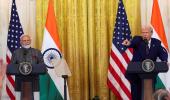
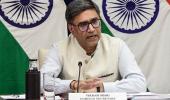
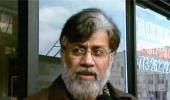
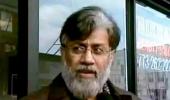
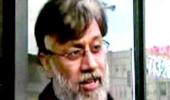






 © 2025
© 2025